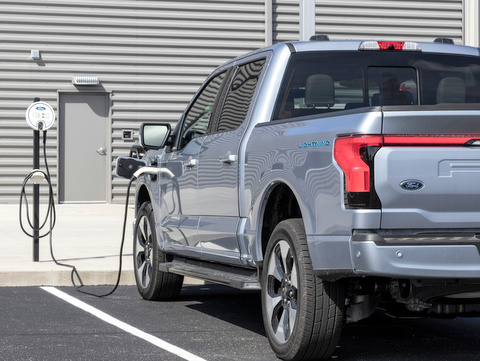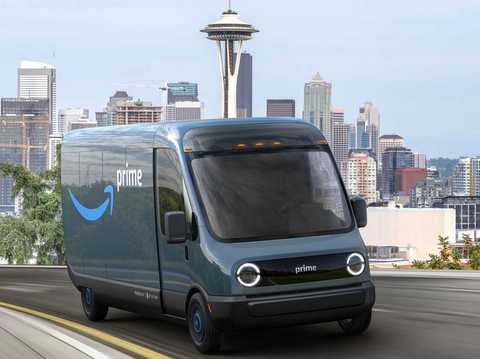Digging Deep To Help the Environment
Electrification is a conversation common among consumers who feel a responsibility to reduce fossil fuel consumption and carbon emissions through car purchase choices. However, supply chains could make an even more prominent impact by electrifying their fleets of vehicles, which account for more significant environmental degradation. What other factors make electrification such an urgent priority?
It Empowers Small Businesses

Small businesses are always looking to gain a competitive advantage and save on costs, and EVs can help accomplish both goals.
Electrification gives small businesses an eco-friendly edge over competitors and may help them attract eco-conscious buyers. Plus, the investment gap between gas-powered vehicles and EVs is becoming less egregious, which means company owners don’t have to wait as long to start seeing the cost savings associated with owning an electric vehicle.
Around 42% of organizations are ordering EVs because they believe it will make them industry leaders. Supply chains making these progressive decisions will likely enjoy resilience and sustained profit margins.
It Makes Financial Sense
The regulatory landscape has made electrification the smart financial choice. In the United States, the Inflation Reduction Act provided tax incentives for supply chains transitioning to green transport. In other parts of the world, electrification benefits investors and clients, too.
With a fleet of EVs, small businesses will not have to worry about fluctuating gas prices, which makes budgeting easier and provides consistency that was never there before. Additionally, EVs have fewer maintenance needs than traditional vehicles, adding to their financial viability.

It Improves Operations and Tech Stacks
As a result of needing less maintenance, operational costs will decrease with a fleet of EVs. Instead of spending time and money on maintenance and repairs, organizations can spend time improving productivity and leveraging new technologies.
Artificial intelligence (AI), machine learning, the internet of things (IoT) and related technologies allow supply chain managers to connect with EVs to monitor routing, gather data and provide safety oversight. When supply chains can gather more assets in a centralized location, it creates more visibility and cohesion. Countless EVs integrate these technologies for seamless operational enhancements.
It Eliminates Emissions
With over 417 million metric tons of carbon dioxide emissions in 2021, medium- and heavy-duty trucks account for 23% of the greenhouse gases in the U.S. Many supply chains rely on vehicles in these categories to transport supplies. Their negative impact on the environment is too much to ignore.
Slashing emissions is even more vital for last-mile deliveries, which comprise a prominent portion of that percentage. Adopting EVs promotes cleaner air, less waste and makes green energy commonplace.
Why Supply Chain Electrification Is a Big Deal
Switching to EVs is one of the most significant choices a supply chain can make today for its sustainability impact, financial wellness and regulatory adherence. Nations are quick to make promises to eliminate diesel- and gas-powered vehicles by a specific date, and commercial outfits must be first to sign up if the impact will matter. The choice affects customers, B2B partners and the planet.
